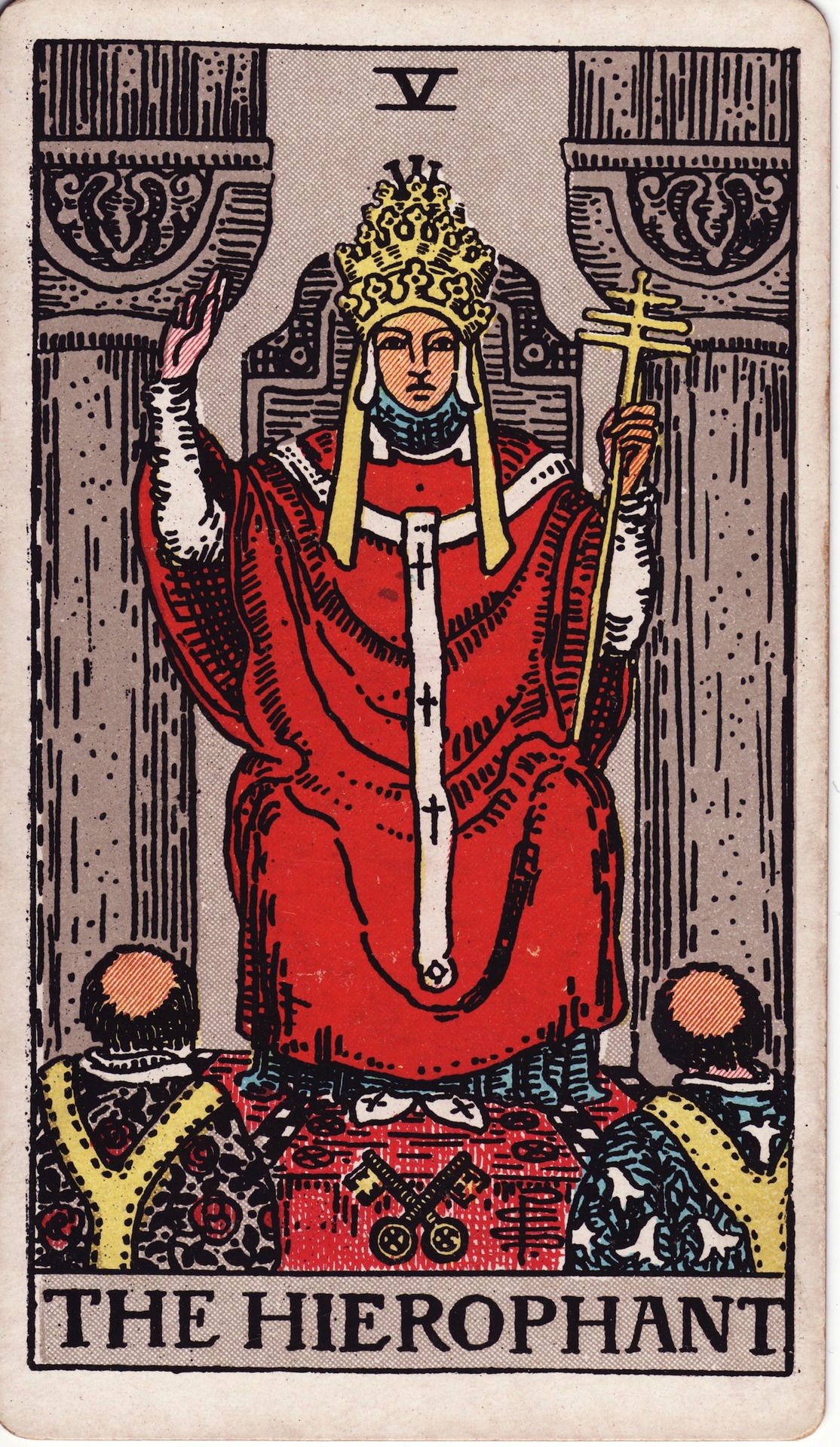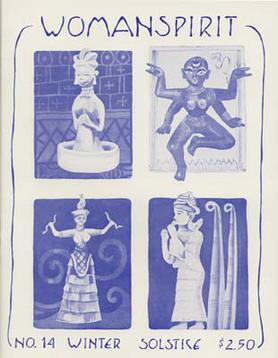Related Research Articles

Dianic Wicca, also known as Dianic Witchcraft, is a modern pagan goddess tradition focused on female experience and empowerment. Leadership is by women, who may be ordained as priestesses, or in less formal groups that function as collectives. While some adherents identify as Wiccan, it differs from most traditions of Wicca in that only goddesses are honored.
Feminist theology is a movement found in several religions, including Buddhism, Hinduism, Sikhism, Neopaganism, Baháʼí Faith, Judaism, Christianity and New Thought, to reconsider the traditions, practices, scriptures, and theologies of those religions from a feminist perspective. Some of the goals of feminist theology include increasing the role of women among clergy and religious authorities, reinterpreting patriarchal (male-dominated) imagery and language about God, determining women's place in relation to career and motherhood, studying images of women in the religions' sacred texts, and matriarchal religion.

The Empress (III) is the third trump or Major Arcana card in traditional tarot decks. It is used in card games as well as divination.

The Hierophant (V) is the fifth card of the Major Arcana in occult Tarot decks. It is derived from the historical card known as the Pope in playing card decks. It is used in divination.

Zsuzsanna Emese Mokcsay is an American writer, activist, playwright and songwriter living in America who writes about feminist spirituality and Dianic Wicca under the pen name Zsuzsanna Budapest or Z. Budapest. She is the founder of the Susan B. Anthony Coven #1, which was founded in 1971 as the first women-only witches' coven. She founded the female-only type of Dianic Wicca.

Lesbian feminism is a cultural movement and critical perspective that encourages women to focus their efforts, attentions, relationships, and activities towards their fellow women rather than men, and often advocates lesbianism as the logical result of feminism. Lesbian feminism was most influential in the 1970s and early 1980s, primarily in North America and Western Europe, but began in the late 1960s and arose out of dissatisfaction with the New Left, the Campaign for Homosexual Equality, sexism within the gay liberation movement, and homophobia within popular women's movements at the time. Many of the supporters of Lesbianism were actually women involved in gay liberation who were tired of the sexism and centering of gay men within the community and lesbian women in the mainstream women's movement who were tired of the homophobia involved in it.

The Goddess movement includes spiritual beliefs or practices that emerged predominantly in North America, Western Europe, Australia, and New Zealand in the 1970s. The movement grew as a reaction to Abrahamic religions, which have only gods with whom are referred by male pronouns, and it uses goddess worship and may include a focus on women or on one or more understandings of gender or femininity.

Monica Sjöö was a Swedish-born British-based painter, writer and radical anarcho/ eco-feminist who was an early exponent of the Goddess movement. Her books and paintings were foundational to the development of feminist art in Britain, beginning at the time of the founding of the women's liberation movement around 1970.
Barbara G. Walker is an American author and feminist. She is a knitting expert and the author of over ten encyclopedic knitting references, despite "not taking to it at all" when she first learned in college. Other topics she has written about are religion, New Age, the occult, spirituality, and mythology.

Chicana feminism is a sociopolitical movement, theory, and praxis that scrutinizes the historical, cultural, spiritual, educational, and economic intersections impacting Chicanas and the Chicana/o community in the United States. Chicana feminism empowers women to challenge institutionalized social norms and regards anyone a feminist who fights for the end of women's oppression in the community.

The Ace of Wands is a tarot card of the Minor Arcana, arcana being Latin for mysteries. The cards of the Minor Arcana are considered to be lesser compared to the Major Arcana because they discuss the minor mysteries of life, less important archetypes. Modern tarot readers interpret the Ace of Wands as a symbol of optimism and invention.

Sally Miller Gearhart was an American teacher, feminist, science-fiction writer, and political activist. In 1973, she became the first open lesbian to obtain a tenure-track faculty position when she was hired by San Francisco State University, where she helped establish one of the first women and gender study programs in the country. She later became a nationally known gay rights activist.

A matriarchal religion is a religion that focuses on a goddess or goddesses. The term is most often used to refer to theories of prehistoric matriarchal religions that were proposed by scholars such as Johann Jakob Bachofen, Jane Ellen Harrison, and Marija Gimbutas, and later popularized by second-wave feminism. In the 20th century, a movement to revive these practices resulted in the Goddess movement.
Vicki Noble is an American feminist shamanic healer, author, scholar and wisdom teacher.
Feminism is one theory of the political, economic, and social equality of the sexes, even though many feminist movements and ideologies differ on exactly which claims and strategies are vital and justifiable to achieve equality.

Cerridwen Fallingstar, is an American Wiccan priestess, shamanic witch, and author. Since the late 1970s she has written, taught, and lectured about magic, ritual, and metaphysics, and is considered a leading authority on pagan witchcraft.
Maxine Hammond Dashu, known professionally as Max Dashu, is an American feminist historian, author, and artist. Her areas of expertise include female iconography, mother-right cultures and the origins of patriarchy. She identifies as a lesbian.

WomanSpirit was a lesbian feminist quarterly founded by Ruth and Jean Mountaingrove and produced collectively near Wolf Creek, Oregon. It was the first American lesbian/feminist periodical to be dedicated to both feminism and spirituality. Many of the contributors to WomanSpirit were, or became, well known within the women's spirituality movement. It had 40 publications, covering topics such as ecology, goddess myths and rituals, feminist theory, and divination. Its submissions included articles, photos, letters, book reviews, artwork, and songs.
U.S. Games Systems, Inc. (USGS) is a publisher of playing cards, tarot cards, and games located in Stamford, Connecticut. Founded in 1968 by Stuart R. Kaplan, it has published hundreds of different card sets, and about 20 new titles are released annually. The company's product line includes children's card games, museum products, educational cards, motivational cards, tarot cards, and other fortune telling card decks. These are marketed through a network of retailers, including bookstores, museum gift shops, metaphysical shops, greeting card stores; toy and game stores; hobby shops, and mail order catalogs.
Glenys Livingstone is an Australian author and teacher who has made significant contributions to the feminist pagan community and is the creator of the earth-based goddess movement known as PaGaian Cosmology.
References
- ↑ Broude, Garrard, and Brodsky, power of feminist art: the American movement of the 1970s, history and impact (New York: H.N. Abrams, 1994).
- ↑ William Graebner, Patty's Got A Gun (Chicago: University of Chicago Press, 2008).
- 1 2 Tali, Didem (17 June 2018). "The tarot revival thanks to Brexit, Trump and Dior". BBC News. Retrieved 17 June 2018.
- 1 2 3 "Motherpeace Tarot :: Welcome", n.d., http://www.motherpeace.com/index.php.
- 1 2 "Origins of the Motherpeace Tarot" . Retrieved September 30, 2011.
- ↑ Giles, Cynthia (1994). The tarot : history, mystery, and lore (1st Fireside ed.). New York: Simon & Schuster. ISBN 0-671-89101-4. OCLC 30319267.
- ↑ Farley, Helen (2009). A cultural history of tarot : from entertainment to esotericism (Online-Ausg. ed.). London: I. B. Tauris. ISBN 9781848850538.
- ↑ Zajko and Leonard, Laughing with Medusa: classical myth and feminist thought, Classical presences (New York: Oxford University Press, 2006).
- 1 2 Greer, Mary K. (2002). Tarot for your self a workbook for personal transformation . Franklin Lakes, NJ: New Page Books. pp. 216. ISBN 9781564145888.
- ↑ McLeod, Aorewa (2013). Who was that woman, anyway? : snapshots of a lesbian life. Wellington, N.Z.: Victoria University Press. ISBN 9780864738783.
- ↑ "Archived copy" (PDF). Archived from the original (PDF) on 2018-02-08. Retrieved 2018-06-17.
{{cite web}}: CS1 maint: archived copy as title (link) - ↑ "Meet the Makers of Motherpeace Tarot, the Feminist Deck That Inspired Dior's Resort Collection". Vogue. Retrieved 17 June 2018.
- ↑ Joyce Goggin, "A History of Otherness: Tarot and Playing Cards from Early Modern Europe," Journal for the Academic Study of Magic, no. 1 (2003): 45-73.